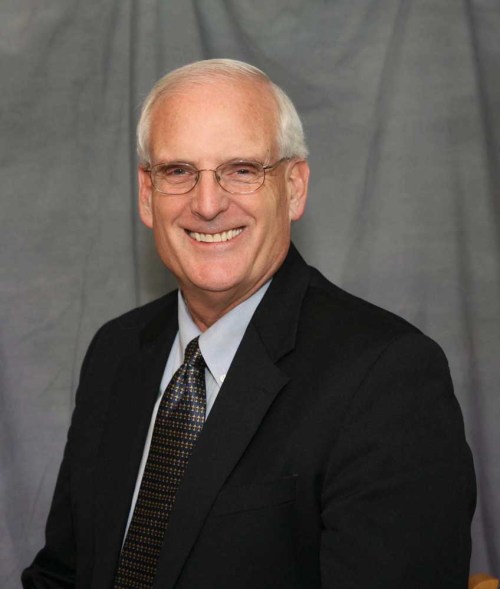Republican vs Republican in U.S. Capitol controversy
Published 8:30 am Friday, January 29, 2021

- Hansell
SALEM — Oregon House Republicans disowned an official Oregon Republican Party claim that the riot at the U.S. Capitol was a “false flag” operation by Democrats to politically damage then-President Donald Trump.
A two-page screed featured a resolution passed by the party’s executive committee calling the 10 House Republicans who voted for the impeachment of President Trump “traitors.” It claimed the mob of Trump supporters who smashed their way into the U.S. Capitol in a riot that left five dead and 140 police officers injured was a Democratic conspiracy to set off the “sham” impeachment. The episode was likened to the 1933 burning of the German Reichstag in Berlin by Nazis, who then blamed the fire on others. The party called for a “patriot network” to advance their claims.
“Democrats and their enablers are trying to falsely assign blame to the peaceful protesters present that day,” the state GOP said.
The hyperbolic language, embrace of dark conspiracies, and invocation of Nazism was an inflammatory brew quickly picked up by the Washington Post, CNN, and Britain’s Guardian newspaper. Twitter and Facebook spread the story around the globe.
In an extraordinarily swift and unanimous rebuke, the 23 members of the House Republican caucus in Oregon signed a letter rejecting the Oregon Republican Party’s official statement.
“There is no credible evidence to support false flag claims,” the letter said. “Oregon is in crisis. Vaccines are not going to our most vulnerable, our students are still not in a safe classroom setting, Main Street businesses are in a tailspin, our health data is a mess and here we are, talking about a political party resolution.”
Umatilla and Morrow counties are represented by two of the House Republicans who signed the statement pushing back on false flag claims, Rep. Greg Smith, R-Heppner, and Rep. Bobby Levy, R-Echo. Smith told the East Oregonian that it isn’t the first time he has been at odds with the Oregon GOP — in 2009 the party chair called for his resignation, which he did not give.
Smith’s habit of working with people across the aisle causes consternation for some members of his party, and he doesn’t line up with the rhetoric of the statement put out by the state party. But he said he also gets an “A plus” on party platform issues, such as gun control.
“I’m really trying to figure out where I fit in as a pro-life, pro-gun, pro-business, pro-ag conservative who also wants to work with people on the other side,” he said.
He said he’s not the only Republican feeling that way, and he believes other conservatives who reflect the party of Reagan, Bush, Eisenhower and other past Republican presidents need to speak up and let people know the party isn’t just those “loud” voices making inflammatory statements.
It wasn’t the first time lawmakers had to respond, dismiss or explain some action of a state political party whose decades-long political right turn had outpaced even its growingly conservative state representatives. As the party’s size and influence has declined, the tension between those who carry the GOP banner outside and those inside the Capitol trying to influence policy has stretched nearer to a breaking point.
The lawmakers’ letter didn’t mention the House members or Trump’s debunked claim that the election was stolen by President Joe Biden.
With Republicans facing a Democratic supermajority in both chambers of the Oregon Legislature just as the 2021 session began, many GOP lawmakers complained the state party was trying to score national political points instead of working to win Oregon elections.
“It’s none of our business what U.S. House Representatives from other states do,” Rep. Bill Post, R-Keizer, wrote in a blog post demanding an agenda reset. “Focus, please.”
The Senate did not make a group statement, but some also were angry with the timing, topic and tone of the attack.
“I have not seen any credible evidence to suggest that the riot at the United States Capitol was a ‘false flag,’” said Sen. Tim Knopp, R-Bend. “I do not support the Oregon Republican Party’s resolution. I find it disheartening that while Oregonians are struggling, these political distractions get in the way of helping them recover.”
When asked his thoughts, Sen. Bill Hansell, R-Athena, said the entire issue was a distraction from work that needed to be done during the current legislative session in Oregon, and said he was “absolutely opposed” to rioting by people of any political position.
“The fact for me is the violence,” vhe said. “It doesn’t matter who caused it, it was wrong.”
The uproar intensified when the Anti-Defamation League harshly criticized Republicans for misappropriating the Reichstag fire, a prelude to the Holocaust, to buttress an argument that those who were the target of the attacks were the perpetrators.
“The violence at the U.S. Capitol on January 6th was a large-scale physical assault on our nation’s democratic values and institutions perpetrated by right-wing conspiracy theorists, extremists, and supporters of former President Trump. That is a fact,” the ADL said in a statement.
Republican lawmakers said they were blindsided by the Oregon Republican Party pronouncement. They were never consulted or even told in advance what was coming from the party’s 22-member executive committee of GOP activists.
The Oregon State Committee has provided fuel for a feud with GOP lawmakers before. The party hosted conservative political firebrand Roger Stone at its 2018 conference in Salem. A squad of Proud Boys, the right-wing group with a reputation for violence, served as Stone’s bodyguards, flashing “white power” hand signs at a party after his speech. The state party didn’t step in when the Portland-area GOP decided to raffle an AR-15 assault-style rifle at a dinner honoring Abraham Lincoln and Martin Luther King in 2011. The “rifle raffle” was repeated in 2014.
Despite the sharply conservative tone of the statement, state GOP chairman Bill Currier has been criticized by some activists as not being conservative enough by requiring a litmus test on issues important to the party’s increasingly Trump-oriented base.
Currier said he believes the party needed to be a “big tent” that can create winning coalitions with unaffiliated voters and disenchanted Democrats.
“We need to be more focused on issues rather than trying to decide whether some given candidate meets some litmus test,” he said. “The party doesn’t pick the candidates, the voters do.”
Critics within the party say the hard right turn on the current version of the Republican Party would reject Oregon icons like Gov. Tom McCall and Sen Mark Hatfield, who spearheaded environmental reforms and equal rights issues.
No Republican has won the governorship since Vic Atiyeh in 1982. The state has supported the Democratic candidate for President, win or lose, back to Mike Dukakis in 1984.
The governor, both senators, and four of five members of Congress are Democrats. So are all the state executive offices: Attorney General, Treasurer, Secretary of State, and Labor Commissioner. The Democrats have 37-23 majority in the House and 18-12 in the Senate.
Republican lawmakers running in 2020 found themselves sharing a ballot and sometimes a stage with Jo Rae Perkins, a QAnon conspiracy believer, who was easily defeated by Democrat Sen. Jeff Merkley. Without strong statewide candidates, Currier and the party committee have been called out by some in the GOP for a “fixation” on launching recall efforts against Gov. Kate Brown that never got enough signatures to even trigger a vote.
Julie Parrish, a former GOP House member who is now a political consultant, said in 2019 that a recall was a sign of a party leadership low on good ideas.
“We need a strategy, and a recall isn’t it,” she said.
The ultimate fallout on the controversy won’t be known for a while. Voters don’t go to the polls again for major partisan offices until the May 2022 primaries.
Jim Moore, a professor at Pacific University, studies public reactions to politics as outreach director from a base named after one of those long-ago Republicans: The Tom McCall Center for Civic Engagement.
“The biggest impact of the ‘false flag’ assertion will be it driving more moderate Republicans out of the party — those that are still left after five years of Trump and decades of a party moving to the right on all issues,” he said.
Winning elections is tough for Republicans in Oregon today. But the party’s scant presence in Salem and Washington was given a jolt by the claims.
“That all being said, the Oregon Republican Party is getting international notice with its incendiary public pronouncements,” Moore said. “The measure of how that is working out will be simple — does it bring in money to the ORP coffers.”
———
East Oregonian reporter Jade McDowell contributed to this report.






